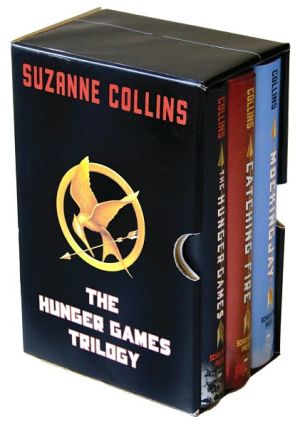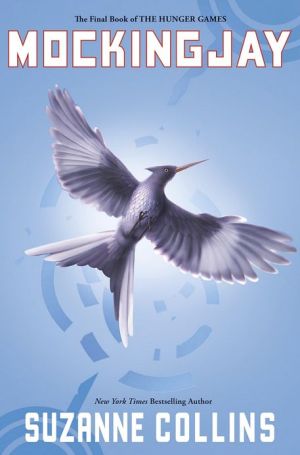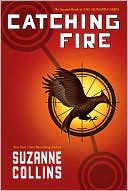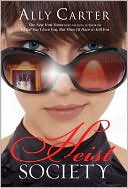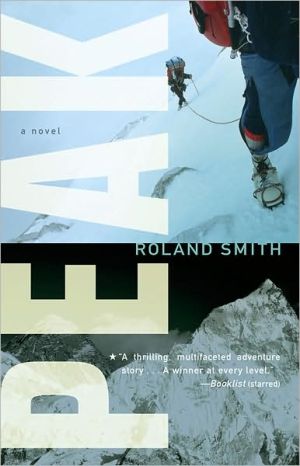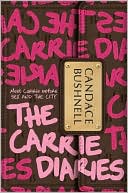The Killing Sea
Ruslan slipped away from the café and the curious onlookers. He began to run, not knowing exactly why, but instinct making him head away from the sea....\ And in the distance, along the seafront of Ujung Karang, screams rose from a hundred, a thousand, mouths.\ Aceh, Indonesia. December 2004. Ruslan, an Indonesian boy, and Sarah, an American girl, are brought together in the aftermath of the devastating tsunami. Ruslan is searching for his missing father, while Sarah is trying to get medical...
Search in google:
Aceh, Indonesia. December 2004 . Two teens find each other surrounded by the destruction left in the wake of the most devastating tsunami the world has ever seen: Ruslan, a native of Aceh, in search of his missing father, whom he hopes has not been added to the fallen; and Sarah, an American girl, who has already lost her mother and is now struggling to find medical treatment for her sick brother. Only together can they find what they're searching for.Children's LiteratureSixteen-year-old Sarah and her family are sailing through the Indonesian islands during Christmas vacation. Sarah's little brother, Peter, annoying as always, and Surf Cat, a half-grown kitten he befriended, are savoring the adventure but Sarah wishes she was back home again with her friends. One morning Sarah's father, the intrepid captain of the crew, anchors the sailboat and they clamber ashore in search of a mechanic to fix their engine. Ruslan, a local Indonesian teenager, curiously watches them as they draw near. He is magnetized by Sarah's blue eyes. Supposing he'll never see her again, he returns home that night and quietly sketches her portrait. Then he gazes out the window at the quiet moon shadows. Little does he know that his peaceful world is about to be torn into shreds by an angry wall of black water that charges into his village like a demented monster. With vivid descriptions, the author takes readers on a journey of horrific devastation in the aftermath of a tsunami. But he also weaves in a story of courage, hope, friendship, and survival as Ruslan, Sarah, Surf Cat, and other survivors struggle against fear, hunger, illness, rebels lurking in the shadows, and unspeakable scenes of death and decay in their effort to find missing family members and get medical help for Sarah's little brother, Peter. An excellent resource for generating discussions about tsunamis and other natural disasters, grief and loss, and friendship. Good for independent reading. Please note: Some disturbing scenes are included, as this. novel is based on the 2004 tsunami that struck Indonesia on Christmas Eve.
\ The Killing Sea \ \ By Richard Lewis Simon Pulse \ Copyright © 2008 \ Richard Lewis\ All right reserved.\ \ ISBN: 9781416953722 \ \ \ Chapter One\ The nightmare again. The water rushed in from nowhere, from everywhere, swallowing him in an instant. He couldn't breathe. Couldn't find a way out. He was going to die --\ Ruslan woke with a gasp. His heart thumped. He swung out of bed to stand in front of the second-story window, taking deep breaths of the cool night air. In the distance, beyond the shacks and houses of Ujung Karang, moonlight glittered on the sea. He knew he wouldn't be able to fall asleep again, so he sat down at his desk, turned on the light, and opened his sketch pad.\ Four years ago, when he was twelve, he'd had nightmares of a monster. He'd drawn its picture, its scaly body and fanged head and barbed tail, and then ripped the monster in half. The monster never bothered his sleep again.\ Perhaps if he could draw the drowning nightmare, he could banish it as well.\ But he didn't know how to draw it. He often swam in the rivers and played in the ocean waves, but this drowning water was different. He didn't know its shape or form. All he knew was its color.\ Black.\ After the morning's only customer paid his bill and left the waterfront café, Ruslan sat down at a rickety plywood table shaded by one of the palm trees. He cradled his head on his outstretched arm. His huge yawn nearly dislocated his jaw.\ Why was he having such awful nightmares? Perhaps it was the sermon at the mosque the other Friday. The preacher had warned of the comingflood of God's judgment for liars and sinners. Was it a sin to drive his father's motor scooter without a license? Ruslan didn't think so. One could sin against God, sure, but how could one sin against the police?\ A breeze ruffled the harbor's water, and the sun twinkled off its surface. Tiny waves lapped against the shore's breakwater. A big tug tied to the pier released its ropes and gunned its diesel, smoke belching from its stack. Its propeller churned the low tide, stirring up black sand and muck into a dark boil. Ruslan frowned, an uneasy feeling pricking him, but the water quickly cleared to its usual murky green. He yawned again. The breeze felt good on his face. His eyes grew heavy. He'd have a quick nap, just a minute's snooze --\ "Excuse me. Ah, maaf permisi."\ Ruslan's eyes flew open. He jerked upright, staring dumbfounded at the Western family standing before him. Father, mother, daughter, and son, their long noses red from the sun. Even the half-grown orange cat rubbing against the boy's ankle seemed foreign. Had they emerged from out of his sleep?\ The big white man held an English-Indonesian dictionary in his hand. He flipped through pages with oil-smudged fingers and found what he was looking for. "Mesin rusak," he said. Broken engine. He nodded over his shoulder at a gleaming white sailboat that had just anchored off the jetty. He flipped more pages. "Bengkel." Mechanic's garage.\ Ruslan stood. "I speak English." As well he should. Ever since he was four, he'd been tutored privately in English at his father's insistence.\ "You can? Great. One of the fishermen there pointed to you, said your father's a mechanic. At least that's what I thought he said."\ Ruslan nodded. "My father is Yusuf the mechanic." Ruslan usually spent most of his free time helping his father in the garage, but he had wanted to earn some money to buy a new set of paintbrushes. A friend had gotten him this part-time job at the café, afternoons after school and all day during Sundays and national holidays, such as today.\ The girl stepped forward and squinted at the café's small display fridge. She and her mother wore long wrinkled dresses, and her mother a head scarf, but the girl's blond hair glowed in the sunlight, her scarf wadded up in her hand. She had the bluest eyes Ruslan had ever seen. The only blue eyes he'd ever seen, at least in real life and not on TV. "Hey," she said, "they have cold Cokes right here."\ "Well, I'll be a soda pop," the father said. "Wonder if they have cold beer."\ "I'm sorry, no," Ruslan said. "We are a Muslim province. We don't sell alcohol."\ "I know. Just fantasizing. Can we have four Cokes?"\ As Ruslan got out the drinks, a dozen kids gathered to gawk at the Westerners. Meulaboh, a small harbor town, didn't get nearly as many foreign visitors as the big city of Banda Aceh, with its grand mosques and golden beaches. Several other people sauntered down the breakwater to also have a look at the strangers.\ The mother whispered to the girl, "Put on your scarf."\ "This stupid dress is enough. I'm drowning in sweat."\ "It's the local custom."\ "But I'm not a local, am I? If they get offended, it's their problem, not mine."\ "Put on your scarf."\ "Soooo barbaric."\ "Sarah. Respect their culture."\ "I put on my scarf at Banda Aceh. It's their turn to respect my culture."\ "If you don't put on your scarf, you go back to the boat."\ The daughter glared at her mother, who calmly returned the glare with a level gaze. Ruslan, intently watching this drama out of the corner of his eye, nearly dropped one of the Coke cans as he put them on the table. He couldn't imagine any teenage girl in Meulaboh defying her mother like this. "Fine," the girl snapped, and stalked back toward the jetty, where an inflatable dinghy was tied up to one of the bollards. She paused and said over her shoulder, "You don't have to love me, Mom, but you should at least respect me as much as you do these total strangers."\ "Whoa," the freckle-faced boy said. "Sarah's sure in a bad mood."\ The mother gave the father an exasperated look, quickly tilting her head at the girl, telling the father to have a word with her. He grabbed a Coke off the table and strode after the girl. Catching up to her, he handed her the soda and spoke with her. She listened, rolling the icy can around her frowning, sweaty face. She shook her head. "I'm not going to wear a scarf just to keep Mom from being embarrassed," she said loudly. Ruslan was sure she meant for her mother to overhear. "That's so hypocritical."\ Her father said something that Ruslan didn't fully catch, something about Christmas and family. The girl firmly shook her head. The father gave the mother a big shrug that said I tried and took his daughter out to the boat in the dinghy.\ When he returned, he said to his wife, "Our darling daughter's hardly full of Christmas cheer, is she?"\ "You shouldn't have let her have the Coke. Coddling her when she's like this doesn't help."\ "We'll give her cat food for lunch."\ "Steve. That's not funny."\ "Just trying to lighten things up. 'Tis the season to be jolly, after all." He paid for the drinks and asked Ruslan, "Where can we find your father?"\ The narrow peninsula of Ujung Karang, sticking out of Meulaboh like a tail, was a maze of streets and lanes where thousands of people lived. Ruslan's house and his father's attached garage were at the base of the peninsula, near the big stadium. Haji Kamarudin, a pensioner with gray hair bristling out from underneath his white skullcap, pushed through the crowd and told Ruslan he'd be honored to show the guests the way. He shook hands with the father, mother, and boy, welcoming them to Meulaboh. Ruslan knew the Haji would first detour to his own house, where he'd offer the guests coffee and cakes. He was a grand old man who always had a kind word for everyone and was curious about everything.\ "Come on, Surf Cat," the boy called out. The cat trotted off with the humans, tail high in the air.\ An hour later the Westerners and the cat reappeared with Ruslan's father Yusuf, who was wearing his mechanic's gray overalls and carrying his satchel of tools. The boy kicked a scuffed soccer ball back and forth with several of the local kids. He looked to be eight or so, and his body hadn't yet grown to match his big, clumsy feet.\ Yusuf put a skinny arm around Ruslan. "My son," he said. Yusuf had worked with Exxon in the northern oil fields for four years after the death of Ruslan's mother, and he spoke reasonable English. "No good mechanic, very good artist. He make your picture, okay?"\ "Bapa," Ruslan muttered, feeling heat flood his cheeks, although he was pleased. Many fathers would have scolded their sons for such a worthless talent that didn't put rice on the table, but his father was proud of him. He planned to send Ruslan to an arts college in Jakarta.\ The group headed for the jetty. "Oh, man," the boy said. "Now we gotta go back to Sarah. If she's still in her stinky mood, can we send her to shore?"\ Ruslan wished they would. Those blue eyes. He wanted to study them some more. Politely, of course. Could he capture that color on canvas, show how light filled the blue?\ Yusuf fixed the engine, and the sailboat left that afternoon. Ruslan stood under the palms and watched as it motored out to sea. A rush of customers came in, demanding his attention, and when he next looked, the boat was gone, almost as if it had been swallowed up by the deep. Ruslan pondered the ocean, silvered by the late afternoon light. Although there wasn't a storm cloud on the horizon, the ocean's cheerfulness had turned moody, even menacing. In his imagination the silver water slowly blackened --\ "Get back to work," his boss yelled at him.\ The girl's blue eyes wouldn't leave him alone. That night he ate dinner by himself, as his father was busy doing another emergency repair on a truck. After dinner he went to his bedroom and got out his pad and pencil.\ A few months ago one of the town's leading clerics had seen him sketching the face of an old woman and had ripped up the sketch. The making of images was forbidden, the cleric said, as that led to idolatry. For the first time in his life, Ruslan knew that a cleric could be wrong, and his world had cracked a little. He didn't dare sketch in public anymore, but in private he drew anything he wanted. Like the face of this Western girl, drawn from his memory. Using his pastel chalk, he touched the eyes with blue -- not the right blue, he needed oil paints for that -- and put just a hint of red to her lips, smudging the chalk with a wetted finger. He taped the sketch next to the poster of Siti Nurhaliza, the teenage Malaysian pop star he had a crush on. He contemplated both poster and sketch, trying to decide which girl was prettier.\ Not that it mattered. Siti lived in a different world, and as for the Western girl, he'd never see her again in his life.\ His father knocked on his door. He'd showered and had changed out of his gray overalls into a sarong. "Is everything okay?"\ "Why?"\ "You look tired. How are things at the coffee shop?"\ "I know one thing now, Bapa. I don't want to work for other people. I want to be my own boss, have people work for me."\ "It's good to have a job first, though," his father responded. "That way when you're a boss you'll know what it's like to be an employee."\ Ruslan hesitated. "Bapa, last week I borrowed your motor scooter without asking. I'm sorry."\ His father seemed startled. Then he laughed. "Did you borrow my helmet, too?"\ "Yes."\ "Good. Always wear a helmet. Listen, I'm going to be up early before dawn prayers to go work on the Pertamina oil tanker. I'll be home very late."\ Before Ruslan went to bed, he gazed out the window. In the outer harbor the oil tanker was placidly at anchor. The big ship cast a moon shadow on the water. The single cloud in the sky fell across the moon, and the sea darkened, obscuring the tanker. A shivery feeling raced from Ruslan's neck down to his arms. Then the cloud moved off, the light returned, and the ship reappeared in the night's sparkling sea.\ Copyright © 2006 by Richard Lewis\ \ Continues...\ \ \ \ Excerpted from The Killing Sea by Richard Lewis Copyright © 2008 by Richard Lewis. Excerpted by permission.\ All rights reserved. No part of this excerpt may be reproduced or reprinted without permission in writing from the publisher.\ Excerpts are provided by Dial-A-Book Inc. solely for the personal use of visitors to this web site.\
\ KLIATT\ - Samantha Musher\ To quote the review of the hardcover in KLIATT, November 2006: Sarah is an American teenager vacationing with her family in Indonesia. Ruslan is the teenaged son of an Indonesian mechanic, whose father has conveniently required that he learn English. When the 2004 tsunami hits, both are separated from their families: Ruslan's father has gone to another town for work, and Sarah and her brother Peter are separated from their parents when their father is injured and their mother killed attempting to escape the wave. For the first half of the book, the teens' stories are told separately in alternating chapters, as Ruslan travels through Aceh Province to find his father and Sarah searches for a doctor for feverish Peter. When Ruslan and Sarah meet, they agree to help each other, and grow to care deeply for one another despite their cultural differences. Lewis, who was raised in Bali as the son of American missionaries, is quite successful at presenting Indonesian culture—especially the political tensions between Aceh separatist rebels and the Indonesian government, which existed long before the tsunami, but with which few of his readers will be familiar. This novel is a gripping, sometimes terrifying adventure story; a touching story of a friendship; and a beautifully drawn picture of another part of the world. And by the end, it has made a strong point about the blindness of the West to those who we see as "different." Reviewer: Samantha Musher\ \ \ \ \ Children's Literature\ - Cheri Stowers\ Sixteen-year-old Sarah and her family are sailing through the Indonesian islands during Christmas vacation. Sarah's little brother, Peter, annoying as always, and Surf Cat, a half-grown kitten he befriended, are savoring the adventure but Sarah wishes she was back home again with her friends. One morning Sarah's father, the intrepid captain of the crew, anchors the sailboat and they clamber ashore in search of a mechanic to fix their engine. Ruslan, a local Indonesian teenager, curiously watches them as they draw near. He is magnetized by Sarah's blue eyes. Supposing he'll never see her again, he returns home that night and quietly sketches her portrait. Then he gazes out the window at the quiet moon shadows. Little does he know that his peaceful world is about to be torn into shreds by an angry wall of black water that charges into his village like a demented monster. With vivid descriptions, the author takes readers on a journey of horrific devastation in the aftermath of a tsunami. But he also weaves in a story of courage, hope, friendship, and survival as Ruslan, Sarah, Surf Cat, and other survivors struggle against fear, hunger, illness, rebels lurking in the shadows, and unspeakable scenes of death and decay in their effort to find missing family members and get medical help for Sarah's little brother, Peter. An excellent resource for generating discussions about tsunamis and other natural disasters, grief and loss, and friendship. Good for independent reading. Please note: Some disturbing scenes are included, as this. novel is based on the 2004 tsunami that struck Indonesia on Christmas Eve.\ \ \ Nancy A. McFarlinIt is a beautiful morning in Meulaboh, Aceh, Indonesia. Sarah and her American family are on a sailing vacation and in need of some engine repair. Going ashore, they meet Ruslan, a boy working at a cafe on the shore. Ruslan guides them to his father who fixes their engine, and they sail on, but not before Ruslan notices Sarah and her crystal blue eyes. Later that morning, both Ruslan's and Sarah's worlds are shattered by an oceanic earthquake, followed by a tsunami that devastates the area. In the aftermath, Sarah and her brother Peter discover their family's sailboat wrecked, their mother dead, and their father missing. Ruslan, thinking his father is on a job fixing the engine on a tanker in the harbor, desperately begins searching for him. Thus the story begins for both teens as they search for their missing fathers in a devastated countryside. The story, told in alternating chapters, is a disturbing one, but one that will pluck at the heartstrings — the strength of these teens, and the challenges they face alone, and then together, reflect only slightly the immense sorrow that overtook this region in December 2004. Recommended for grades 7-10.\ \ \ \ \ School Library JournalGr 6–10\ Ruslan falls for Sarah when her family's sailboat docks in his Indonesian town for mechanical assistance, but Sarah, a self-absorbed American, fails to notice him. Both teens are then caught in the disastrous 2004 tsunami. Sarah makes it to safety, but her mother is killed and her father is missing, leaving her to care for her younger brother. Ruslan also survives and immediately begins to search for his father, who had left their coastal home before the storm. The two meet again, this time forging a relationship. The action never slows, though some dangerous encounters seem unnecessary. Other predicaments are resolved too easily. For example, when Sarah is stranded on an island without a knife, she conveniently finds a boat and machete. Too many conflicts-death, romance, Sarah's anger toward her mother, Ruslan's relationship with relatives who are rebel fighters-muddle the plot. To his credit, the author treats cultural differences with a gentle and honest touch. He also creates a vivid picture of the many horrors and challenges faced in the immediate aftermath of a large-scale natural disaster. Despite drawbacks, this book will appeal to fans of survival adventures like Gary Paulsen's Hatchet (Macmillan, 1986).\ —Jayne DamronCopyright 2006 Reed Business Information.\ \ \ \ \ Kirkus ReviewsDrawing on experience as a volunteer relief worker in Indonesia and interviews with survivors, Lewis applies two human faces to the devastating 2005 tsunami. Toggling between two teens, Ruslan, an artistic Indonesian male, and Sarah, a slightly stereotypical spoiled American on vacation, readers are provided a multi-dimensional view of the region slightly before, during and after the tsunami strikes. This delivers a vivid and unflinching account applicable to a global audience. Despite its focus on the tsunami, elements of the region's political unrest are also woven into the main storyline, increasing the drama of the narrative. However, Indonesia's internal struggle takes a back seat to the tsunami and, unfortunately, is not adequately explained; this proves to be potentially confusing at times. Despite the emotional heaviness of this fictional story, Lewis tempers the tsunami's horror with Ruslan and Sarah's durable sense of hope and their new, but strongly forged friendship, which by the end borders on romance. (author's note, maps) (Fiction. YA)\ \

